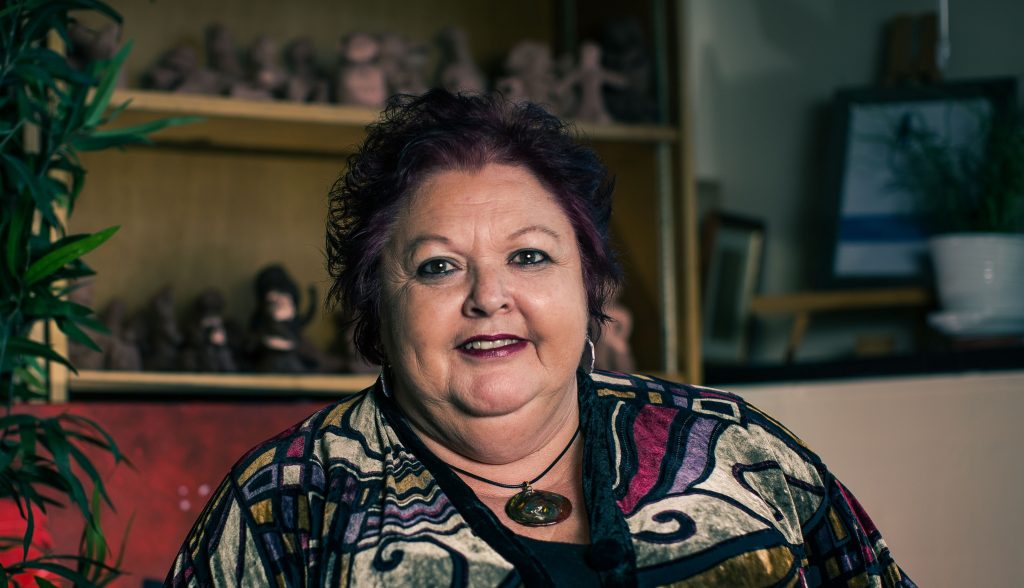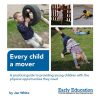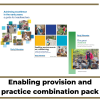DfE launches school-based nursery pilot
The Department for Education (DfE) has today launched a “test and learn” pilot for its planned expansion of school-based nursery provision. Under the scheme, primary
The twelve sessions of the May Annual National Conference 2022 left me reflecting on a strong thread which I felt wove, in different ways, through every contribution. I wanted to take a moment to share my thoughts here.
Slowing down is very important, slowing down and being patient. These are necessary conditions for high quality play, where children are trusted to make their own play using the space, time and open-ended materials that practitioners have provided. When play and children’s capacity for play is properly respected as central to children’s living and learning, it can look messy and chaotic. It’s not always easy to know what is happening as children move things, build, talk together, change their minds, try something else – and that is why the patience of skilled practitioners, and of parents, is so important.
It is also why play pedagogy must be fully understood by inspectors of schools and preschools; understanding that what is happening in play is not always immediately apparent, but what can be seen are the ways children are involved; cooperating, challenging, problem-solving, talking, moving, testing and re-creating. Considerations around play point to a need to be patient, to trust, and to allow children to develop their own play in the company of tuned-in adults who observe, and sensitively engage with children as part of the flow of play.
Such patience applies to working intergenerationally, to the initial training of early years students, to work with the very youngest children, to work with parents. Students, parents, practitioners, older generations and the youngest children all – in their different ways – need time to be, to interact and to think. Time and patience are important in recognising the uniqueness of every child, and resisting the rush to ensure that children meet particular targets at a given point, even though this is often counter-productive.
Many difficulties can be eased if we just slow a little. Play pedagogy requires patience, holistic development requires patience, gardening with children requires patience. We all need to appreciate the benefits in work with children, of slowing down, of being patient, of resisting the rush, of breathing, and of supporting development and thinking. There are times when some children need extra help, and there are many ways to do this sensitively, and patiently. In this era of “catching up” we need to remember that catching up for something missed, can be a slow process, not a quick fix.
So, at the end of our conference I was left with the feeling that patience is crucial, for young children’s learning and for their practitioners. Perhaps we all need to slow down a little and be patient – except of course, for demanding policies which put an end to poverty, disadvantage and discrimination – there is no space for patience there. Some things, of course, require the most urgent action.
Access to the recordings from the conference is available for £10 (members)/£20 (non-members). To register, please email us

The Department for Education (DfE) has today launched a “test and learn” pilot for its planned expansion of school-based nursery provision. Under the scheme, primary
Ofsted has today published its response to the “Big Listen” consultation. For the early years, it undertakes to: On the differences between early years and
We welcome the Department for Education’s announcement that the government are moving ahead with their manifesto commitment to scrap single-word Ofsted judgements for schools, effective immediately,
On 10 June, Labour announced their plans for “over three thousand new nursery classes across England to open up access to childcare hours for families”,
The Conservative Manifesto has promised to extend Family Hubs to all local authorities. This would both extend funding for the 75 local authorities where they
The Lib Dems have published their manifesto, including commitments to incorporate the UN Convention on the Rights of the Child into UK law and to
A report published by the National Audit Office (NAO) today finds that the timetable for the roll-out of the new funded early education and childcare
A new campaign to boost recruitment to the early years sector in England is being launched today by the government. The government press release says:
The Department for Education has today published its response to the EYFS consultation conducted in the summer. The changes will be implemented from January 2024
DfE has today launched a consultation on the new funding rates which will apply for 2-year-olds and under 2s when the new entitlements are introduced
The Department for Education has today announced that the extra £204m for early years announced in the budget will be allocated to local authorities as
In a speech today, Kier Starmer will set out Labour’s plans to expand opportunity via five “missions” including “Early years reform – to boost child development with an
The Department for Education (DfE) is currently consulting on proposals to amend the Early Years Foundation Stage. They propose relaxing the requirements around the minimum
DfE has issued slightly more detail about the planned uplift in the hourly rates for the current and new entitlements, following the announcements in the
Today, teachers from the National Education Union are striking, including many working in nursery and reception classes. In the last week, the Department for Education
We welcome the news that our President, Professor Cathy Nutbrown, has been made a Dame in the year’s New Years Honours list. This is much
The government’s latest changes to the early years funding formulae bring two key changes which we pointed out in our response to the consultation would
DfE have today announced the early years funding settlement for 2023-24, which leaves the early years sector struggling on below inflationary increases. While an additional
Ofsted’s latest annual review highlights the impact of recruitment and retention challenges and finds a link between inspection outcomes and the proportion of graduates in
The tenth early years minister in ten years, Kelly Tolhurst, is now in post. It’s good news that early years is part of a Minister
Comparing figures from January 2022 and January 2020, progress is being made towards previous levels of take up of funded early education. Latest figures from
Early Education welcomes the news that the new National Plan for Music Education has been extended to cover the early years. We are glad to
The Times Education Commission has today published a report which calls for “A significant boost to early years funding targeted at the most vulnerable and
Ofsted has today launched a new five-year strategy. Elements of this which affect the early years include commitments to “simplify the regulatory regime for childminders”
We welcome the government’s new Sustainability and climate change strategy for education and children’s services, and that early years is reflected through a range of
A survey of maintained nursery schools carried out by Early Education in June 2021 has found increasing demand from children with SEND in the current
The DfE have issued documents to support schools and settings to understand how to report to the Early Years Census in the context of the









Early Education
2 Victoria Square
St Albans
AL1 3TF
T: 01727 884925
E: office@early-education.org.uk